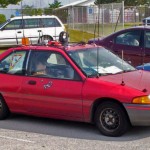 And we are back. In this installment, Richard tells us all about his renewed interest in emergency communications and his dealings with ARES in the Texas county where he now lives. On the Linux side of things, Russ talks about some security issues: the hacking of kernel.org, emacs violates the GPL and how to get cheap certificates for your Web sites. Throw in a dash of humor, some general screwing around and you have the formula for pretty much every episode of Linux in the Ham Shack. Thanks for sticking it out with us, everyone. We love each and every one of you.
And we are back. In this installment, Richard tells us all about his renewed interest in emergency communications and his dealings with ARES in the Texas county where he now lives. On the Linux side of things, Russ talks about some security issues: the hacking of kernel.org, emacs violates the GPL and how to get cheap certificates for your Web sites. Throw in a dash of humor, some general screwing around and you have the formula for pretty much every episode of Linux in the Ham Shack. Thanks for sticking it out with us, everyone. We love each and every one of you.
73 de The LHS Guys
Podcast: Play in new window | Download
